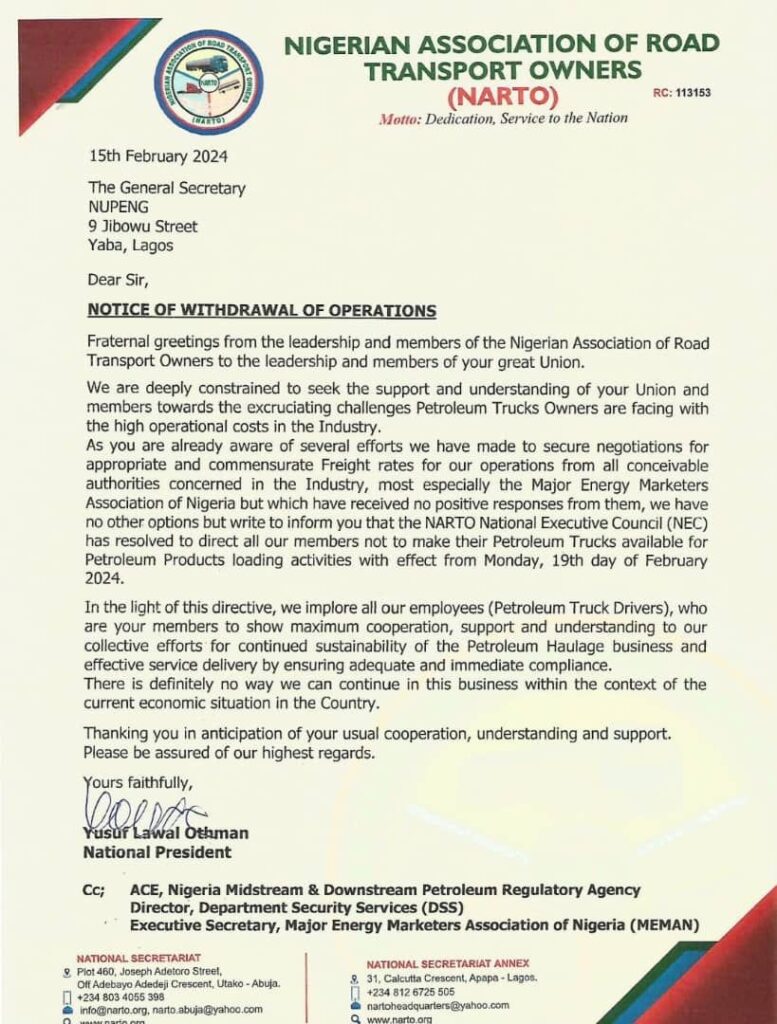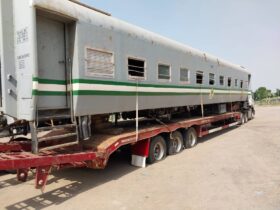Nigeria braces for potential fuel scarcity as the Nigerian Association of Road Transport Owners (NARTO) announces its intention to cease lifting petroleum products starting Monday, February 19th, 2024.

This move follows persistent grievances regarding the exorbitant costs associated with operations within the petroleum haulage sector.
Yusuf Lawal Othman, NARTO’s President, cited the unsustainable nature of current operational expenses as the primary driver behind the decision. Othman lamented the widening gap between operational costs and revenue, stressing that the association’s members have been operating at a loss for an extended period.
Concerns over the escalating cost of diesel, essential for powering trucks during transportation, have been at the forefront of NARTO’s grievances. Diesel prices ranging from N1,250 to N1,400 per liter, depending on the area of purchase, have placed significant financial strain on petroleum truck owners.
Othman reiterated the association’s efforts to engage key stakeholders, including the Federal Government and industry operators, to address the mounting challenges. Despite multiple appeals and letters addressed to relevant authorities, including the Chief of Staff to the President and the Minister of Petroleum Resources, NARTO has encountered a lack of response and concrete action.
READ ALSO: Economic Hardship: Bakers, Caterers Declare Nationwide Strike Starting February 27
Analysis of the prevailing market conditions reveals a stark disparity between operational costs and compensation for services rendered. Othman highlighted the discrepancy in freight rates, which have remained unchanged since previous administrations despite significant fluctuations in the exchange rate.
The announcement by NARTO underscores the urgent need for sustainable solutions to mitigate the impact of rising operational costs on the petroleum haulage business. Stakeholders within the petroleum industry are urged to prioritize dialogue and collaboration to avert potential disruptions to fuel supply chains nationwide.
Meanwhile, concerns persist regarding the broader challenges facing the transportation of petroleum products within Nigeria. NARTO has previously raised issues such as poor road conditions, traffic congestion, inadequate parking facilities, and delayed payments, all of which contribute to operational inefficiencies and increased risks for drivers.
Policy and regulatory concerns have also been highlighted, with NARTO calling for greater clarity and consistency in regulations governing the petroleum haulage sector. Access to affordable financing for vehicle maintenance and upgrades remains a pressing issue for transporters seeking to improve operational efficiency and safety standards.









Leave a Reply